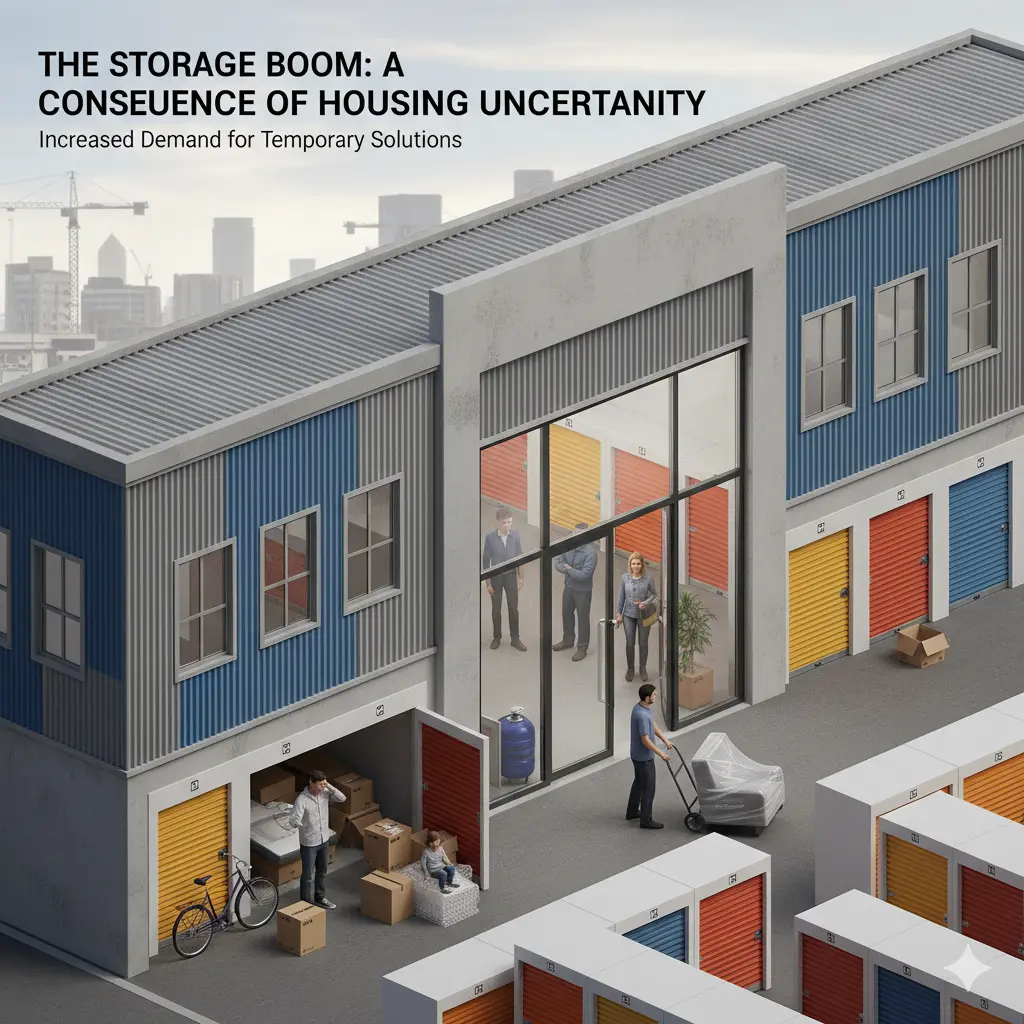
The Ripple Effect: How the Housing Crisis and Council Waiting Lists are Reshaping the Moving Industry
Looking for a reliable UK removals company? Whether you're moving house or need secure storage solutions, the housing market significantly impacts your plans. At IMG Removals, we understand the complex challenges of the current climate. This blog explores how the UK's housing crisis and extensive council housing waiting lists are fundamentally changing the moving industry.
The UK housing market is a complex ecosystem, currently grappling with a severe housing shortage, escalating private rental costs, and a council housing waiting list that stretches into the millions. These interconnected issues are not only impacting individuals and families, but are also sending significant ripple effects through an often-overlooked sector: the moving industry.
The moving industry, encompassing everything from removal companies and self-storage facilities to packaging suppliers and utility transfer services, is intrinsically linked to the dynamics of the housing market. When people move, this industry thrives. But when movement stagnates or shifts dramatically due to external pressures, so too does the industry's landscape.
The Stark Reality: Housing Shortage and Soaring Costs
The core of the issue lies in a fundamental imbalance: demand far outstrips supply. For decades, new housing construction has failed to keep pace with population growth and household formation. This deficit has driven up prices in both the sales and rental markets.
Key Figures:
Housing Completions: Government statistics indicate that in the 2023-24 financial year, there was a net addition of 221,070 homes in England, a 6% decrease from the previous year, and well below the government's target of 300,000 new homes annually. For more details, see the official GOV.UK housing supply data.
Rental Increases: The private rental sector has seen unprecedented rises. According to the Office for National Statistics (ONS), private rental prices in the UK rose by 6.7% in the 12 months to June 2025. This affordability crisis makes it difficult for many to secure a new private tenancy, slowing the volume of moves.
Affordability Crisis: For many, homeownership remains an distant dream, with the average house price significantly outstripping average earnings in many regions.
This pressure on private housing has a direct impact on the moving industry. With fewer affordable options, particularly for first-time buyers, the traditional 'moving up the ladder' cycle slows down. People are staying in their current homes longer, or are trapped in the rental market, limiting the volume of moves.
The Council Housing Conundrum: A Waiting List Crisis
Adding another layer of complexity is the chronic shortage of social housing. Council housing, or social rented housing, provides genuinely affordable homes for those most in need. However, the demand far outweighs the supply, leading to extensive waiting lists.
Key Figures:
Millions Awaiting Homes: Research from housing charities like Shelter consistently highlights that over 1.3 million households are on council housing waiting lists across England.
Decreased Stock: In 2023-24, the government's experimental statistics showed a net loss of 650 social homes in England, demonstrating that more homes are being lost than built.
The immense length of these waiting lists means that many individuals and families, despite being in urgent need, face years of uncertainty, often living in unsuitable or temporary accommodation. This creates a distinct type of "non-move" scenario for the moving industry – people who desperately need to move but cannot because suitable housing isn't available.
Impact on the Moving Industry: A Shifting Landscape
The housing crisis and extensive council housing waiting lists have several profound impacts on the house removals and storage sector. As a leading removals company in the UK, IMG Removals has seen these trends firsthand:
Reduced Volume of Private Moves:
Stagnant Homeownership: With fewer affordable homes, people are less likely to buy and sell, directly reducing the demand for removal services for traditional house moves.
"Generation Rent" Stays Put: While renters do move more frequently than homeowners, the current crisis means many are reluctant to move unless absolutely necessary, fearing even higher rents or an inability to find a new property.
Increased Demand for Storage Solutions:
-
Temporary Accommodation: As people wait for council housing or struggle to find permanent private rentals, there's an increased need for self-storage. Belongings need to be safely kept during periods in temporary accommodation, with family, or when downsizing into smaller, interim properties.
Gap Between Sales/Rentals: The unpredictability of the market can lead to longer gaps between selling one property and securing another, necessitating storage.

More Complex and Urgent Moves:
Evictions and Displacements: The rise in rental prices and the cost of living crisis have unfortunately led to an increase in evictions. These moves are often unplanned, urgent, and emotionally charged, requiring a different kind of service from moving companies – sometimes at short notice.
Crisis Moves: People securing rare council housing placements often need to move quickly once an offer is made, leading to concentrated demand for movers in specific areas or at specific times.
Diversification of Services:
Removals services are adapting by offering more flexible solutions, such as smaller van services for partial moves, packing assistance for stressed individuals, and longer-term storage options. Some are even partnering with social services to assist with moves for vulnerable individuals.
The Government Position and Future Outlook
The UK government acknowledges the housing crisis and has outlined various strategies to address it.
Increasing Housing Supply: A central pillar of government policy is to increase the supply of new homes. The ambition is to deliver 300,000 new homes a year in England. This includes measures to streamline planning processes, invest in infrastructure, and encourage both private and public sector housebuilding.
Affordable Housing Programs: There are ongoing schemes to support the delivery of affordable housing, including grants for social rented homes, shared ownership, and other low-cost homeownership options.
Addressing Homelessness: Funding is allocated to local authorities to prevent homelessness and provide support for those in temporary accommodation.
Despite these efforts, the scale of the challenge is immense. Critics argue that progress is too slow and that the targets are not being met consistently. The focus on new build numbers sometimes overshadows the need for genuinely affordable housing, particularly social rented homes, which are crucial for alleviating pressure on waiting lists.

Conclusion: A Resilient Industry Adapting to Adversity
The current housing situation in the UK, characterised by a severe shortage and an overwhelming demand for social housing, presents significant challenges for millions of people. For the moving industry, it means adapting to a landscape where traditional moving patterns are disrupted.
While the volume of certain types of moves may have decreased, demand for specific services like storage and urgent, crisis-driven removals has intensified. Companies like IMG Removals are demonstrating resilience and adaptability, evolving their offerings to meet the shifting needs of a population grappling with housing instability.
Ultimately, a healthier, more equitable housing market benefits everyone – not least the industry that helps us transition from one home to the next. Addressing the root causes of the housing crisis will not only improve countless lives but will also allow the moving industry to thrive in a more predictable and sustainable environment.


.webp)



